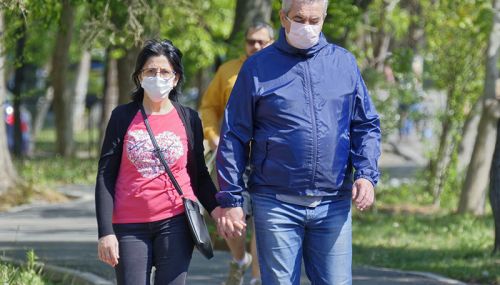
- Our studies
- Our research
- Publications and resources
- Data access and training
- About
- News
- Events
- Get in touch
- Join our mailing list


Researchers now have access to data about how the COVID-19 pandemic has affected over 18,000 participants of five nationally representative longitudinal cohort studies based at UCL. The new data will help researchers understand the economic, health and social consequences of the coronavirus outbreak and track the lasting impact on people’s lives.
The participants, aged between 19 and 74, completed an online survey which asked about their physical health, mental health and wellbeing, family and relationships, education, work and finances, time use, and attitudes during the lockdown. The questions focused mainly on how people’s lives had changed from just before the outbreak in March 2020 up until their response to the survey which took place during the lockdown restrictions in May 2020.
In addition to the quantitative survey, an open question asked people to share, in their own words, how the pandemic had affected them and their loved ones, providing an opportunity for qualitative research. Participants were also asked to download a COVID-19 symptom tracker app, developed by King’s College London, to collect data that will also be linked to their study records in due course.
The survey was sent to participants in all four national longitudinal cohort studies run by the UCL Centre for Longitudinal Studies (CLS) as well as participants in the MRC National Survey of Health and Development, run by the MRC Unit for Lifelong Health and Ageing (LHA), also based at UCL. The five studies included are:
These studies have been following large, representative cohorts since birth, gathering information about different aspects of participants’ lives, at different stages of their lives. Researchers will be able to analyse these new COVID-19 survey data in conjunction with these longitudinal data.
Professor Alissa Goodman said: “COVID-19 has brought unprecedented and sudden changes into all our lives. The data from the COVID-19 Survey in Five National Longitudinal Studies will enable researchers to examine the impacts of the pandemic on people in the UK of different ages and backgrounds. Researchers will be able to use the new data alongside other study data, collected across more than 70 years, to understand how prior life experiences shape resilience or vulnerability to the effects of the pandemic. And in the future, as we keep up with study participants, we will be able to see how the events of recent months may play out in their lives in the longer term. The insights these data will generate will be invaluable to policymakers who need to respond to the effects of this shock event on our society and who need to act to protect the people most vulnerable to its lasting impacts.”
A number of research briefings, using the data from the first wave of the COVID-19 survey, are under preparation. These will explore a range of topics, from mental health, work, parenting and attitudes, and will be made available on the CLS website in the coming weeks.
A follow up COVID-19 survey (wave 2) is planned for August. The participants in all five studies will be invited to take part again.
For more information about the design and content of the survey, the response, data collected and weights, see the CLS website COVID-19 survey page. The questionnaire and user guide are both available to download.
The online survey data from the four CLS studies taking part, namely the MCS, Next Steps, BCS70 and NCDS, have been de-identified and are available for researchers to download under End User Licence from the UK Data Service from today:
To download the data (SN: 8658), visit the UK Data Service website.
The data are also available from each of main pages for the four studies on the UK Data Service website:
National Child Development Study
Weights have been provided with this COVID-19 dataset to take account of non-response to the survey, in order to help researchers produce representative results. See the user guide to the data for more information.
Access to the qualitative data from the CLS studies, is available under secure conditions, on request to CLS. For more information about how to apply, please visit the CLS website.
Data from the NSHD will be available from the UK Data Service, under Special Licence, shortly.
Notes:
Credit: Image by Mircea Iancu from Pixabay
Ryan Bradshaw
Senior Communications Officer
Phone: 020 7612 6516
Email: r.bradshaw@ucl.ac.uk